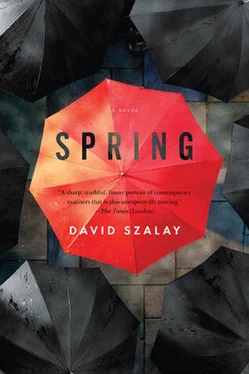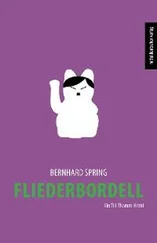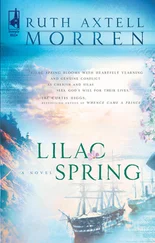The September of his final year. Mid-morning in the music school. Miserable autumn weather. (There is a pail out in the middle of the parquet, slowly filling from a weeping fissure in the moulding overhead.) The multicoloured application forms for the Royal College of Music are there on the table, waiting to be filled in—and in Mike’s opinion the application is no more than a formality. Freddy is of a much higher standard than is necessary to win a place most years…
When Freddy interrupts to say that he has no intention of applying to the Royal College, Mike looks as if he has just been told his Yorkshire terrier, Lulu, has died in a lawnmowing accident.
‘Why?’ he says finally.
Freddy says that as a professional pianist—and he seems to have no doubt that that is what he would be if he persevered with the piano—he would simply be performing the work of other men. They were the artists. The musicians were mere performers. Monkeys…
Anticipating Mike’s next point with a lifted finger, he says that it just isn’t possible to write music now. Not serious music. Serious music was fucked. (He did use the word ‘fucked’.) No serious music of any value was being written. As a medium it was quite possibly finished. He did not intend to waste his time on it. (Thus, incidentally, he flushed Mike’s life’s work—numerous suites and sonatas, one of which, the ‘West London Sonata’, had had an outing at the Norwich Music Festival—down the toilet of history.) No, what Freddy intended to do, he told the now misty-eyed Mike, was write. He would be a novelist, and he would start by taking an English degree at Oxford.
When he had said his piece, he lit a Gauloise filterless. He waved out the match and placed it neatly on the unused application forms. He looked up at the ornate plafond.
Though he would never admit it, he has, in the years since, spent much time pondering that miserable morning in the music school.
He went to Oxford, but there was no degree. He was sent down in his second year for doing no— no —work.
Through an intricate mechanism of interlocking nepotisms, he eventually found himself working first as a stringer and then as a staffer on a Fleet Street newspaper. These were the John Major years. He managed to spin out a decade or so of journalism— he was supremely plausible when he wanted to be—all the time incubating his masterpiece; wallowing in the tired sleaze of the times, and always planning to start it soon. In truth he started it on numerous occasions. Secretly, cigarette in mouth, he would type a few pages of a Sunday morning, and then, with a sneer on his face, scrumple them up and throw them away. They were never good enough to justify that morning in the music school. They were never anywhere near good enough. The futile, putrid soap opera of Tory politics circa 1995 was what he was in fact writing about. Malicious diary stuff mostly. For a while in the mid-Nineties he was a well-known quidnunc schmoozing the Commons bars.
Towards the end of the decade things started to go wrong. He was drinking too much. Of course, he had always been drinking too much from a medical standpoint; now he was drinking too much even to hold down his job as a political hack and diarist, with its semi-nocturnal hours and intense professional interest in watering holes. Stories went unfiled. He missed important things. (Was not answering his phone, for instance, on the afternoon of 11 September, 2001—he was passed out on the sofa.) There was an AIDS scare. In the office for a while, the story was, erroneously as it turned out, that Freddy was HIV positive. Still, his hair and teeth were starting to fall out, and he couldn’t afford a proper dentist. (Someone said that ended his dreams of television-pundit stardom. Freddy said, ‘What about John fucking Sergeant?’) And his old school-friend James, for a year or so, looked likely to find himself quite high up the Sunday Times Rich List. That didn’t help Freddy’s mood in the late Nineties. He had always looked down on James slightly—an unusually subtle jock perhaps, but fundamentally a philistine—and he found it hard to stomach the fact that, in the eyes of the world, he might ultimately prove more successful than him. Much more successful. Freddy was freelancing now, living hand to mouth—or mouth to hand—off his ability to winkle information out of people in pubs. The first New Labour landslide hadn’t helped. The immense shuffling of seats it entailed—the sudden and violent swings of status—were mirrored in the world of journalism. And to the extent that he was in with anybody, Freddy was mostly in with Tories. He had of course tried, too late—his self-interest was by then painfully transparent—to start making friends with some Labour people, but his main sources were still Tories, and no one was very interested in what they said or thought any more. Loose ends from schooldays—he hadn’t even tried to start his magnum opus for several years. Nor, for several years, did he see James. He was just unable to stomach the success of Interspex. When he saw in the papers that it had failed, he was pleased.
In many ways they were unlikely friends. Though they were in the same French lessons, they were in different houses and did not speak to each other until they shared a taxi to Heathrow at the end of their first term. They both had parents living overseas. Freddy’s parents—he was the sort of person it was hard to imagine having parents—lived in Dar es Salaam, where his father was a diplomat. There was a fellowship among the expat students. They were like orphans on the last day of term. Sometimes they had to spend an extra night in the empty school. Even if they didn’t, they were usually the last to leave. They seemed more worldly than the others, which in itself made them to some extent outsiders at the school. If Freddy’s mode of outsiderdom was obvious, however, James’s was more subtle. A tall, manly teenager—the infrequent spots looked out of place on his face and neck—a sportsman and in terms of schoolwork middling at most, he was in many ways a model lad. Perhaps he lacked some of the jocular oomph of the mainstream lad, and though he sat at the lads’ table in the dining hall—the loudest table, a mass of egregiously fashionable haircuts (flat-tops) and shoes (Doc Martens)—though his place there was entirely secure, the others might have felt at times that there was something semi-detached about him. Sometimes he seemed, in a mysterious way, to be several years—i.e. significantly—older than they were. There was that sense of worldliness. There was a lurking seriousness. To the younger pupils, he seemed like a proper man among them, someone their parents might know. That was one thing. His friendship with Munt was another. (And it was a measure of James’s status that he was able to be friends with Munt at all without significantly impairing his own standing.) Most of James’s other friends thought Freddy was a fucking weirdo. A fucking sicko. Most of his other friends were the sort of people who soberly tried to ignite their own farts. They were locker-room types. They were pack animals par excellence. The self-selecting school elite. A loner like Freddy made no sense to them. And most of Freddy’s other friends… Well, Freddy had no other friends.
In 1984, he spent the ten-day Michaelmas half-term with James in Paris. They stayed out very late every night, loitering hopefully in Pigalle, and drinking Pernod (the advert in the cinema with the naked woman under water), and walking into the skanks of Maghrebi drug dealers in the vicinity of the Gare du Nord. The following summer the same station was their jumping-off point for a month’s inter-railing—the zenith of their early friendship.
When they left school two years later, in spite of widely divergent paths, they still saw each other sometimes. James has unpleasant memories, for instance, of the time he visited Freddy up at Oxford. He was not in his element there. The students, even Freddy, did not seem to speak the same language as him; he literally did not understand quite a lot of what they said. He himself was just starting out as an estate agent at Windlesham Fielding—something he instinctively hushed up—and had moved into a place in Islington with Miriam. The pizza franchise, the film—such things filled the last few years for him. In one way or another, he spent much of his time thinking about money. The squalor of the house in which Freddy lived with various other people shocked him—he had been prepared for something squalid and it still managed to shock him. It had been the plan for him to stay there on the sofa. When he saw the sofa—dank in the spliffsmoke—he opted for a hotel. Which didn’t make him any more popular. Freddy’s squeeze, Isolde, who was something in the student union, subjected him to an irritating interrogation—she kept insisting that he tell them what he thought of ‘Thatcher’—as he tried to feel at home sitting on the ashy floor with a can of Carlsberg in his hand. The extraordinary thing was, these people were his own age—twenty, twenty-one. The places where they went out at night were just depressing. Hitting London in the Audi on Sunday evening, looking forward to dinner with Miriam, he promised himself he would never visit that freezing, foggy shithole again. And he didn’t. Freddy was sent down a month later anyway.
Читать дальше












